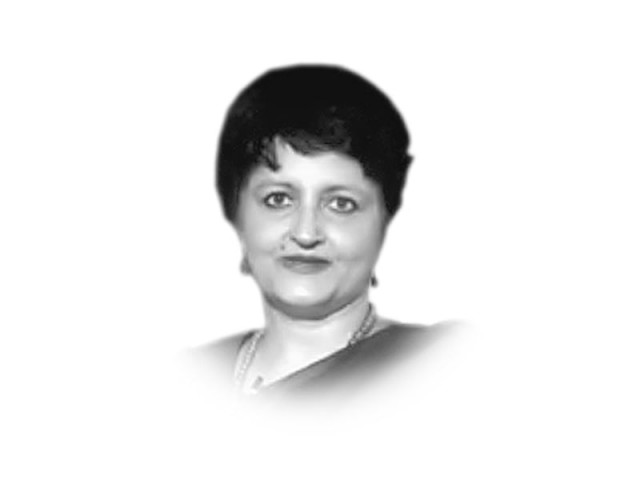Indian interest in Pakistani politics
The appointment of Najam Sethi has been welcomed across the board in India.

The writer is a consulting editor with The Statesman and writes widely for several newspapers in India
The fact that the general has returned to full-time politics does not surprise anyone here. At least, not more than the fact that he has actually defied threats to his life and returned to contest the forthcoming elections from not one but three constituencies. Given his obvious unpopularity in Pakistan, he is being seen as a spent force in government circles here. However, there are some in the security establishment who refuse to believe that Pakistan will see a free and fair election and hence, insist on putting their money on the former president with the argument that given the current political options, Washington would like to see a “friendly” face at the helm of affairs. It is no secret in Pakistan, and hence in India, that Saudi Arabia facilitated Musharraf’s return to Pakistan by persuading the government and the opposition to give him full security and a chance at the hustings.
Surprisingly, Musharraf’s statement that he was proud of the Kargil operations did not invite an Indian response, probably because it has not enthused the Pakistanis, with former ISI chiefs debunking his claims, describing Kargil as “hare-brained” and saying that Musharraf should have “faced a court martial” for his misadventure. It is interesting to note that this time around, India does not seem to have any favourites for the elections, having as good or bad a relationship with all in the fray. This is certainly a change from the past, with India quite prepared to do business with President Asif Ali Zardari, Nawaz Sharif, Imran Khan or Pervez Musharraf at this stage.
The appointment of Sethi has been welcomed across the board here, more so as he is a popular and frequent visitor to India. His words are sober, his writings unemotional and he has many friends here who hope to visit Lahore now during the elections. Sethi’s warning that he will deal with all equally while in office as caretaker chief minister was dismissed by some of his India friends. But his appointment has brought home to even the cynics here that Pakistan is serious about its elections and that it is appointing able and impartial persons to the crucial top offices for ensuring a fair poll. A familiar face in position has helped quell some of the suspicions here about the elections in Pakistan being free and fair.
The third aspect of the Pakistani elections that has sparked interest in Indian drawing rooms is the reported feud between President Zardari and his son, Bilawal. Will the young prince return or will he stay away? What impact will his absence have on the PPP? The Nehru-Gandhi family has often been compared in political drawing rooms with the Bhutto-Zardari dynasty with Bilawal being seen by political leaders as more charismatic than the Congress scion Rahul. Even as they speculate, Congress leaders offer silent prayers in relief that their family, at least, is united with relations warm and seemingly uncomplicated — more so, as the Indian elections are just around the corner, with the minority UPA government dependent entirely on the goodwill of unpredictable regional parties to survive the long year to the general elections.
Published in The Express Tribune, March 30th, 2013.















COMMENTS
Comments are moderated and generally will be posted if they are on-topic and not abusive.
For more information, please see our Comments FAQ